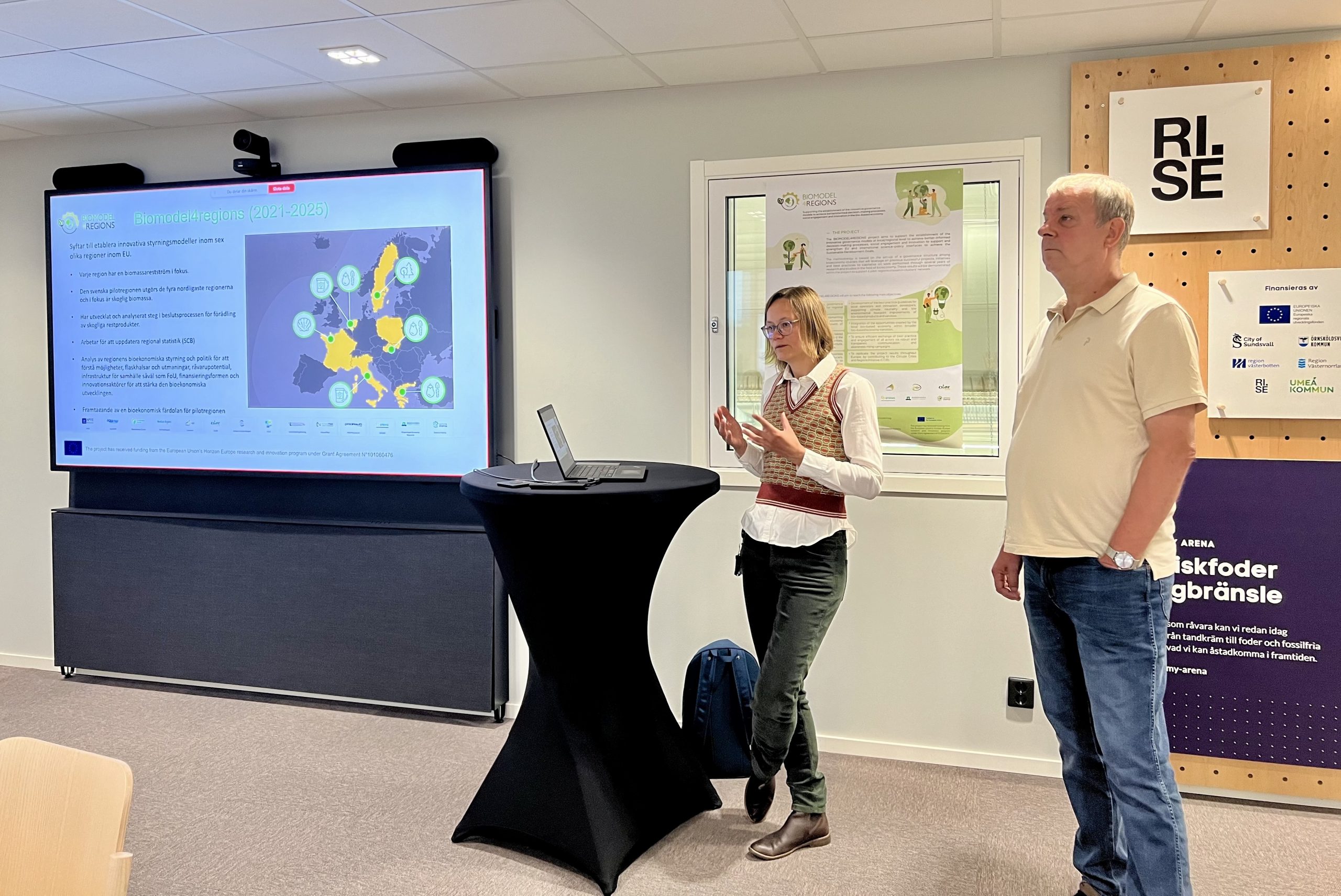Regional experiences towards a bioeconomy blueprint
September 12, 2024

In Mid-August a regional strategic co-creation workshop organized by BioFuel Region in collaboration with RISE, took place in Örnsköldsvik, northern Sweden. The purpose was to bring together different stakeholders in the bioeconomy sector to jointly discuss the proposal for the Swedish bioeconomy strategy, the priorities that were highlighted reflect what is important from our regional perspective. This was one of the steps towards the project’s upcoming bioeconomy blueprint.
During the day Hans Nilsagård form The Government Office participated and reviewed the proposal’s mandate, goal statements and proposed measures. He also answered questions from the interested stakeholders which was represented by regional authorities, Research & Development and companies. Together we analyzed the proposals and provided opinions based on northern Sweden’s conditions and perspective.
“This is a good model of how to engage stakeholders by linking ongoing national work of a bioeconomy governance model with the regional process of the project. Working together, from different sectors provides complementary knowledge and perspectives, which allows us to identify where the gaps, but also the possibilities, lie and thereby formulate cross-sectorial measures for transforming into a sustainable bioeconomy”, says Eleonora Borén, innovations- och processledare, RISE.
What is a bio-based strategy blueprint?
The project will deliver six regional bio-based economy strategy blueprints, one by each pilot region. It will contain the methodology for each of the relevant analysis/outcomes of the project, as well as success factors and limitations. To be used by regions and their clusters to further develop their bio-based economy, working towards to a regional strategy in the long-term.
One of the regions is Northen Sweden, and the discussions during the workshop can be summarized like this: we have renewable resources together with traditional and research-based knowledge and we will contribute to the national bioeconomy goals. What we need are supportive policy instruments, reduced investment risks and support for community building.
 Share
Share
